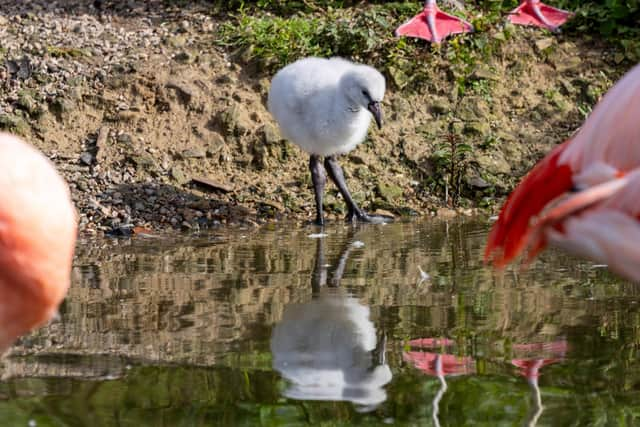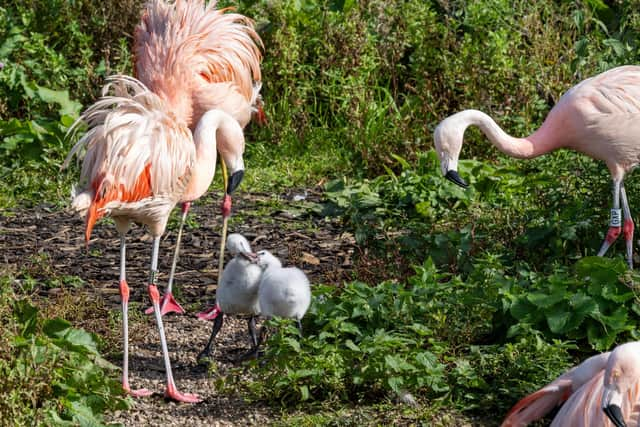Three Chilean flamingo chicks hatch at WWT Martin Mere Wetland Centre in Burscough for first time in 10 years
and live on Freeview channel 276
Hatching near the beginning of September, the adorable chicks are wowing visitors and stealing the hearts of the staff at Martin Mere.
Nick Brooks, Centre Manager at Martin Mere, said: “The mini heatwave that took place near the beginning of September is believed to have had a positive impact on the breeding of our Chilean flock.
Advertisement
Hide AdAdvertisement
Hide Ad“Now a few weeks old, the chicks have ventured out from their nests and can be admired in our Chilean flamingo enclosure, providing heartwarming moments and exceptional photo opportunities.”


Chilean flamingos are Native to South America, ranging from Chile to Argentina.
According to the IUCN Red List, the species is classified as near threatened, with a decreasing population trend.
In the wild, breeding can happen all year round with the adults usually building nests in late spring and depending on conditions such as food availability.
Advertisement
Hide AdAdvertisement
Hide Ad

Both sexes build a tall mud nest using soft mud and stones that are within reach.
A single white egg is then laid in the nest, with both parents taking turns incubating it for approximately 26 to 31 days.
Visitors to Martin Mere Wetland Centre will have the opportunity to witness the chicks as they grow, alongside seeing many other wetland species from around the world like otters, swans, storks, geese, and ducks.
To find out more about WWT Martin Mere Wetland Centre, visit their website at https://www.wwt.org.uk/wetland-centres/martin-mere/.
